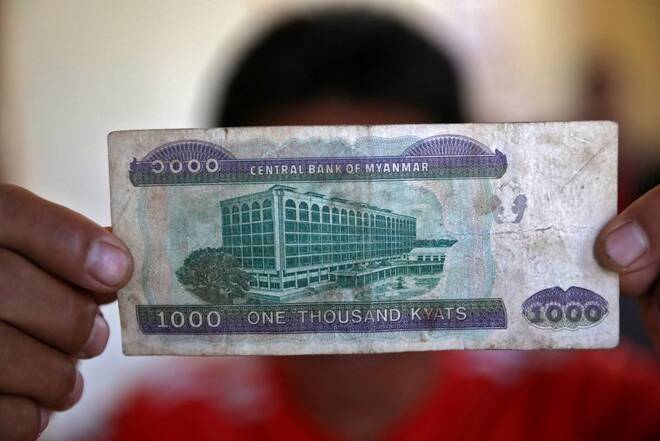Advertisement
Advertisement
Myanmar economy to remain “severely diminished” amid conflict -World Bank
By:
(Reuters) - Myanmar's economic growth remains "severely diminished" and GDP is expected to increase just 3% in the fiscal year to September, the World Bank said on Friday, as the country remains embroiled in conflict two years after the military seized power in a coup.
(Reuters) – Myanmar’s economic growth remains “severely diminished” and GDP is expected to increase just 3% in the fiscal year to September, the World Bank said on Friday, as the country remains embroiled in conflict two years after the military seized power in a coup.
Widespread violence, worsening power shortages and policy failures will continue to disrupt an economy already crippled by political and social turmoil, the World Bank said in a regional report.
“The business environment is unlikely to improve materially while electricity shortages, logistics disruptions, trade and foreign exchange restrictions, and regulatory uncertainty persist,” the report said.
Myanmar’s army ousted an elected government in 2021, unleashing chaos as it sought to crush its opponents. Its crackdown on dissent and ensuing backlash from armed groups has led to a retreat by foreign firms concerned about political risks, sanctions and damage to their reputation.
The World Bank said Myanmar’s economic output will remain well below levels seen in 2019, even as the rest of the East Asian region rebounds from pandemic-era lows.
Myanmar’s gross domestic product contracted about 18% in 2021, before growing 3% in 2022, according to the World Bank.
The report said households faced severe pressure due to lower purchasing power and higher food and fuel prices, with the kyat currency plunging around 31% against the U.S. dollar.
It also said there has been a shift in the past year from a managed floating exchange rate regime toward a reliance on administrative controls, including rules on surrendering foreign exchange.
Last year, Myanmar’s central bank ordered ministries and local governments not to use foreign currencies for domestic transactions, to help relieve pressure on the kyat.
A spokesperson for the junta did not immediately respond to a request for comment.
Military authorities have said they are trying their best to revive the economy, and blame foreign-backed “sabotage” for the crisis.
(Reporting by Reuters staff; Editing by Kanupriya Kapoor)
About the Author
Reuterscontributor
Reuters, the news and media division of Thomson Reuters, is the world’s largest international multimedia news provider reaching more than one billion people every day. Reuters provides trusted business, financial, national, and international news to professionals via Thomson Reuters desktops, the world's media organizations, and directly to consumers at Reuters.com and via Reuters TV. Learn more about Thomson Reuters products:
Advertisement
